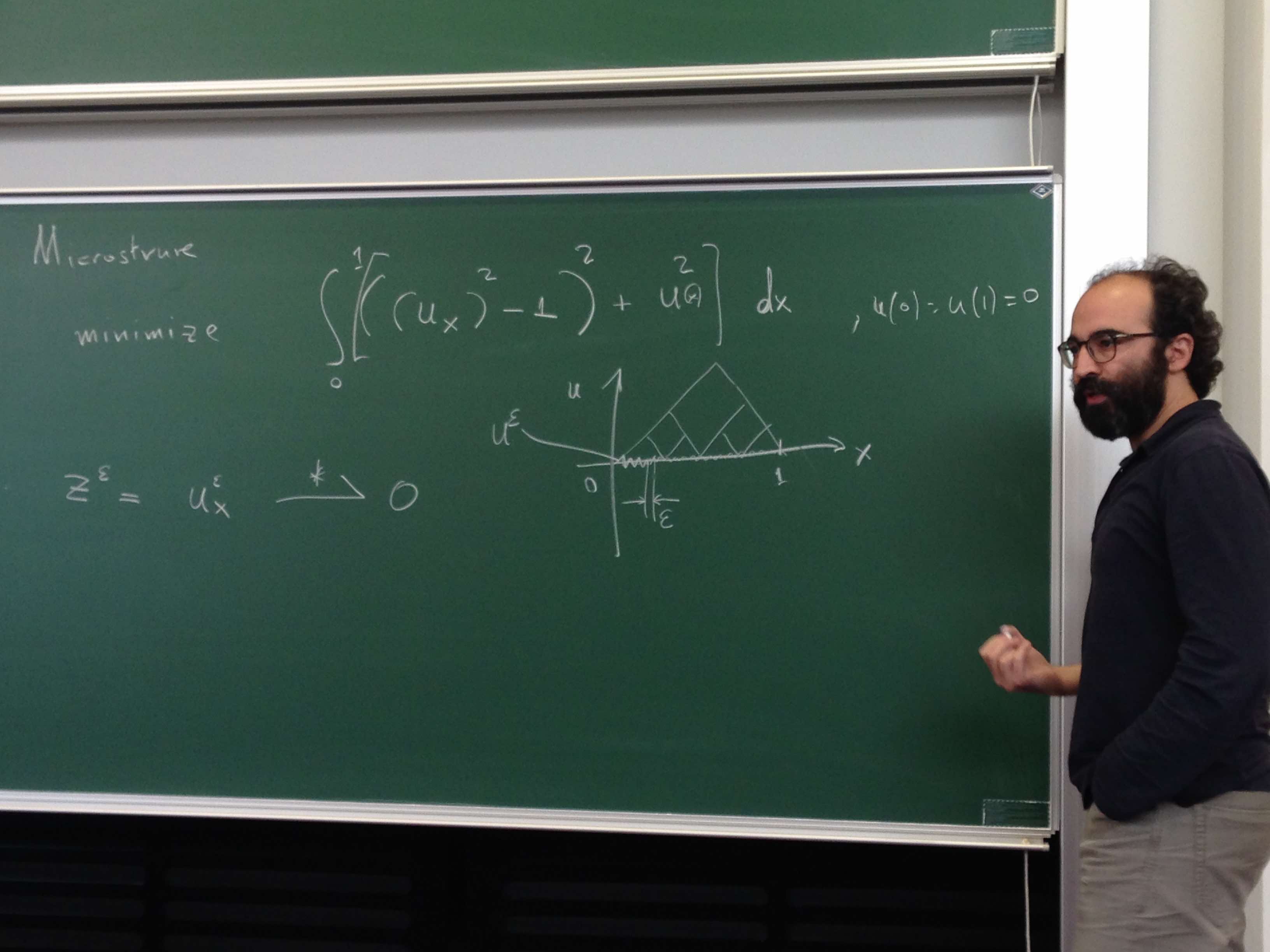Warwick Statistical Mechanics Seminar
in the Department of Mathematics
 |
This term, all seminars take place Thursdays at 2pm, room MS.03 (Zeeman Building), unless indicated otherwise. |
 Dimitris Tsagkarogiannis, 21.05.2015 |
| 25.04.2024 | |
| 02.05.2024 | |
| 09.05.2024 | |
| 16.05.2024 | François Huveneers (Kings College, London) Absence of normal transport in an interacting disordered spin chain Many-body localization (MBL) is an out-of-equilibrium phase of matter featuring emergent integrability: There exists a complete set of local integrals of motion. As a result, an MBL system remembers its initial state for arbitrarily long times if the system is thermally isolated. This implies, in particular, a total absence of transport. Proving this at the mathematical level of rigor has proven very challenging and remains unresolved. In this talk, I will present a theorem stating that the diffusion constant of such systems vanishes, indicating that transport is at most sub-diffusive. An interesting aspect of the proof is that it relies on establishing MBL in some portions of the chains that are immune from resonances. Additionally, it rules out some numerical results that suggested MBL would not exist at all. Our work represents thus a step forward in rigorously establishing the existence of the MBL phase in one-dimensional systems. From a work with W. De Roeck, L. Giacomin and O. Prosniak. Contact: Daniel |
| 23.05.2024 | Costanza Benassi (Northumbria University) The Symmetric Matrix Ensemble: integrable lattices, orthogonal polynomials and hydrodynamic chains Random matrix models naturally arise in relation to a great variety of problems in mathematics and physics, and constitute a paradigm for the modelling of complex phenomena. We focus on the Symmetric Matrix Ensemble (SME) and its relationship with integrable lattices and with a class of skew-orthogonal polynomials. We exploit these properties of the system in order to characterise and investigate the thermodynamic limit of the relevant order parameters, and show that in this limit they satisfy a novel integrable chain of PDEs as functions of the coupling constants. This talk includes results from C.B., M. Dell’Atti, A. Moro (Lett. Math. Phys., 2021) and C.B., M. Dell’Atti and A.Moro (in preparation, 2024). Contact: Daniel |
| 30.05.2024 | Leonid Pastur (Kings College London and Institute for Low Temperatures Physics and Engineering Kharkiv) Entanglement Entropy of Free Disordered Fermions We consider a macroscopic system of free lattice fermions, and we are interested in the entanglement entropy (EE) of a large block of size L of the system, treating the rest of the system as the macroscopic environment of the block. Entropy is a widely used quantifier of quantum correlations between a block and its environment. We begin with known results (mostly one-dimensional) on the asymptotics form of EE of translation-invariant systems for large L, where for any value of the Fermi energy there are basically two asymptotics known as area law and enhanced (violated ) area law. We then show that in the disordered case and for the Fermi energy belonging to the localized spectrum of a one-body Hamiltonian, the EE obeys the area law for all typical realizations of disorder and any dimension. As for the enhanced area law, it turns out to be possible for some special values of the Fermi energy in the one-dimensional case. Contact: Oleg and Vedran |
| 06.06.2024 | Ben Lees (University of Leeds) Discrete lattice models as complex spin systems It has long been known that some important spin systems on lattices, such as the spin-O(N) model, have representations in terms of discrete structures (loops, paths etc) on the lattice. This has been a fruitful connection, however many discrete models on lattices, such as percolation, the dimer model, spatial random permutations, and others, are also of considerable interest. In these cases there was no precise link to spin systems, either because the motivation came from elsewhere, or because these are toy models that have taken on a life of their own. In this talk I will present a spin system where spins take continuous complex values. By choosing the measures appropriately, virtually any discrete system of interest can be obtained as a special case. These spin systems then lend themselves naturally to several of the well developed tools of classical spin systems. This is joint work with Volker Betz. Contact: Daniel |
| 13.06.2024 | |
| 20.06.2024 | |
| 27.06.2024 | |